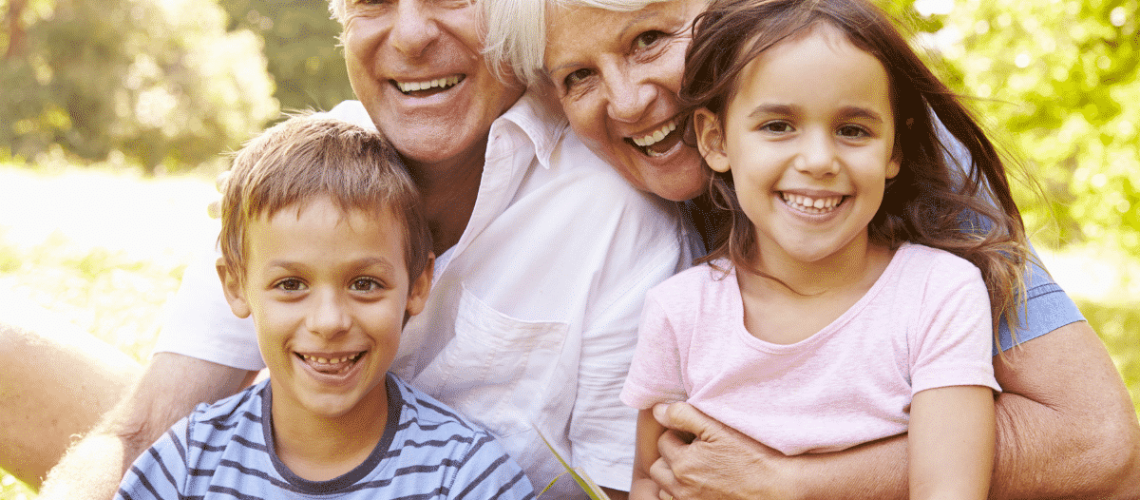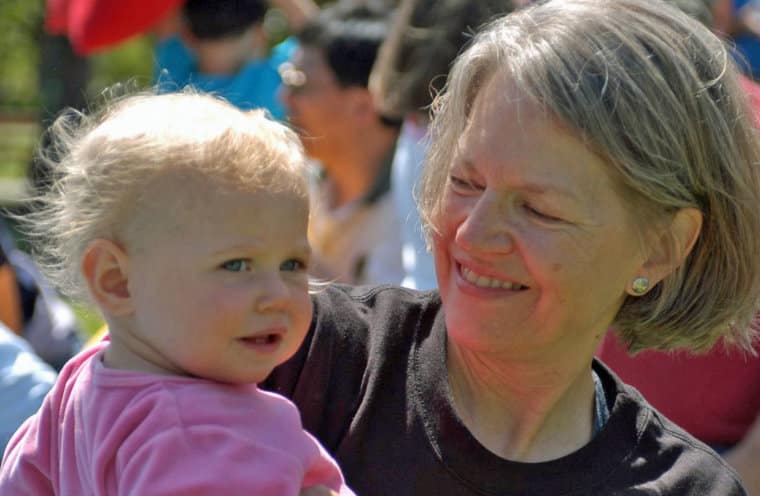Grandparents are Important!
Grandparents are very important to families. Our value to our children and grandchildren is enormous. Your grandchildren love to spend time with you and your children are often grateful for the added attention, gifts, and resources you provide for the little ones you love so dearly.
Most of us get to love our grandchildren with an open-hearted love, free from the everyday worries and tasks that wear on parents — like getting the children on the school bus on time, getting their teeth brushed, or setting the rules on video games or candy. We also bring experience, enthusiasm, and much-needed attention. When asked what they like about being a grandparent, almost every grandparent I have spoken to says, “We get to love them fully and then we get to go home!”
For example, my husband and I took care of our 3-and 4-year-old grandsons while their parents had a much-needed dinner and movie date. The boys had a lot of energy and were not interested in settling down so we began to play with them. They sat on us and when we would try to get up, we pretended they were too strong for us. We tried to rescue each other from their clutches with no success. This became a wonderful, rollicking game full of screeching and laughter that went on for half an hour. Finally, we gave them piggyback rides around the house, then read them to sleep. After all this activity we were quite tired and ready for bed ourselves! We were happy to have their parents take over again when they came back!
As the economics of parenting becomes more difficult, more grandparents are providing help by spending substantial amounts of time with grandchildren to free parents up to work outside the home. And for many thousands of big-hearted grandparents, who have become primary caregivers for their grandchildren, there is no going home. The challenges of caring for a second set of little ones when you’ve earned a rest are great, sometimes even crushing.
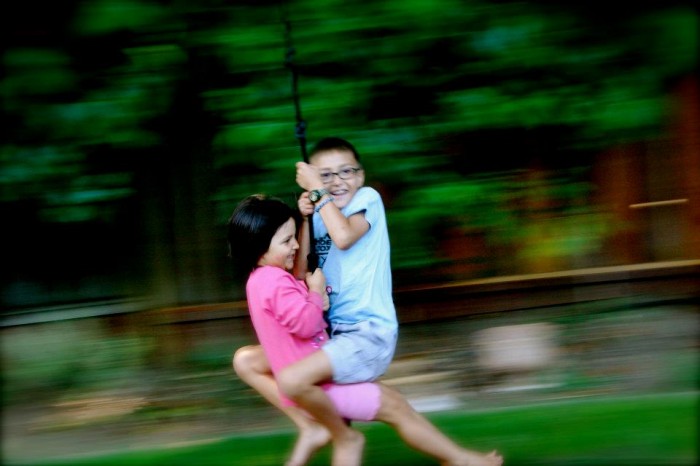
Since I have become a grandparent, I have been noticing the various challenges we face. Here are a few I have been thinking about.
- We live in a society that isn’t fully respectful of parents or grandparents. Grandparents are often portrayed as cute and incidental, or intrusive and critical. We pour enthusiasm, creativity and energy into our families. While most of us do not face the same intensity of everyday time constraints and stress that parents face, it is demanding work to be with children. Like parents, we grandparents are not always appreciated for it.
- Most of us carry unresolved tension in our relationships with our children. The tension is rooted in the parenting challenges we faced years ago. We struggled to be the best parents we could. We got far too little support. Hence, we live with regret and sadness about the errors we feel we made, or the errors our children feel we made as parents. We may try to “make up for it now” by loving our grandchildren and doing things differently, hoping our children will notice and forgive us. Who among us has not hoped that, now that our children are parents themselves, they will better understand the difficulties we faced when they were young?
- We find that we sometimes disapprove of our children and how they are parenting or managing their lives; at the same time, we want to be supportive of them. This can feel like walking a tightrope! How can we tell when to intervene, give advice, or offer information? Is it ever OK?
- At times we may feel jealous of our grandchildren’s relationships with their other grandparents, especially if we live farther away or if our children seem to appreciate another grandparent more.
- Most of us are elders and face worries about our health, our finances, or continuing to have the energy to live our lives well. We want to stick around for a long time and watch our families grow up! Children love physical play, and we feel sad when we can’t run as fast or play as hard as our grandchildren would like.
listening helps us connect
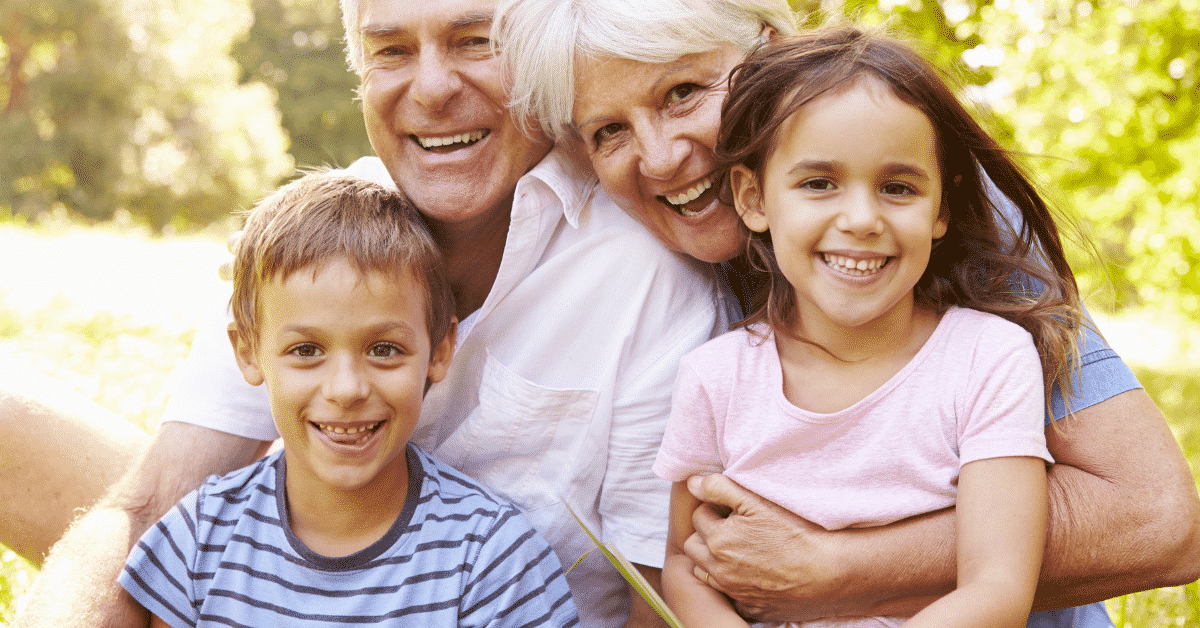 Being listened to is important. We have high hopes for our relationships with our children and grandchildren, and lots of love to give. Getting a chance to talk about our joys and challenges can be a first step in meeting some of these challenges. When we can talk about the difficulties that come up, it can ease tension and open our minds to fresh solutions.
Being listened to is important. We have high hopes for our relationships with our children and grandchildren, and lots of love to give. Getting a chance to talk about our joys and challenges can be a first step in meeting some of these challenges. When we can talk about the difficulties that come up, it can ease tension and open our minds to fresh solutions.
Asking someone we trust to listen to us while we talk about our lingering regrets as parents, our worries about our health, and other issues that come up can be helpful. After someone has listened to us with attention and compassion, we become more able to listen deeply to others. This can help us listen to our children, learn more about what parenting is like for them, and convey the caring and confidence that will bring us closer to being the parents and grandparents we have always hoped to be.
When we partner with another caring parent or grandparent to create this climate of safety in listening, long-stored emotions can come to the surface. Growing more comfortable with showing feelings and accepting the expression of feelings in others is an important ingredient in building connection and closeness with our loved ones.
However, here’s where things can become complicated. We live in a society that does not encourage the expression of emotions. In fact, parents are expected to keep children’s feelings “under control.” Feelings between parents and grandparents can flare when they do not hold the same attitudes toward children crying or having tantrums. For example, you may be comfortable with your grandchildren crying or showing anger, but their parents are not. Or the opposite may be true. The parents may want to listen to their children while they have big feelings, and you might feel that they are not disciplining the children properly.
This incident illustrates how quickly grownups’ feelings arise, once a child is expressing big feelings: I was on a crowded train recently with my 9-year-old and 4-month-old grandsons and their mom, my daughter-in-law. We had just spent several hours in a museum, it was getting late, we were all tired. She was holding the baby and he began to cry. My daughter-in-law tried the usual ways of comforting him. She offered him a bottle and then a pacifier, but he would have none of it. She realized he just needed to let us know that he was not happy at that moment. She gave him her undivided attention, saying gentle things and letting him know she was listening.
Meanwhile, I watched the people on the train growing nervous. One woman came up to us and tried to figure out why he was crying. I explained that we had had a long day and he was fine, just needed to complain a bit. She became more vocal about stopping him from crying and I politely but firmly told her all was well and we had it under control. Many people on the train looked concerned, agitated, and even angry. Knowing that our children, too, sometimes need to simply be listened to is a relatively new concept. And it is one that can put us at odds with those around us.
For more on Handling Tantrums in Public read this post
respect is essential
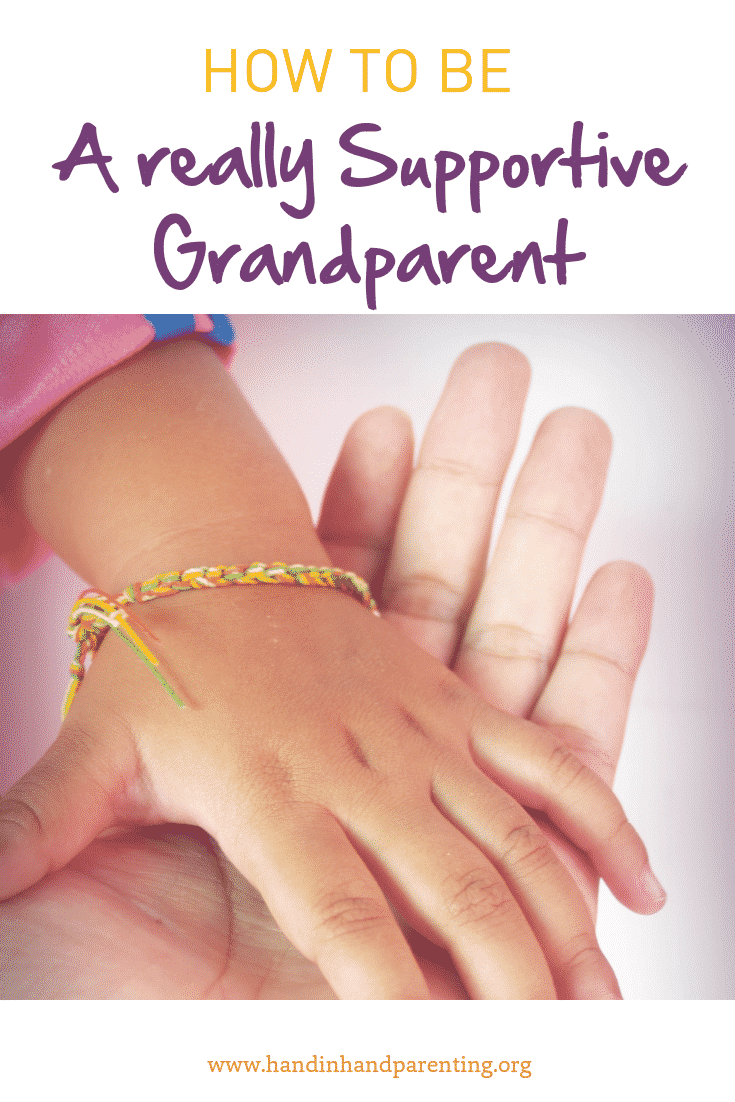 Knowing how to navigate the divide between our ideas and our children’s ideas of what is best for our grandchildren is not always easy. We grandparents need to keep thinking about what actions best reflect our love and our respect for our children and our grandchildren.
Knowing how to navigate the divide between our ideas and our children’s ideas of what is best for our grandchildren is not always easy. We grandparents need to keep thinking about what actions best reflect our love and our respect for our children and our grandchildren.
For example, I was sitting with my infant grandson in my lap and talking to a close friend. My grandson began to cry. I followed the routine his parents established with him. I talked to him and let him know I was there. He kept crying. I asked him if he was hungry and tried a bottle. He pushed the nipple away with his tongue. Finally, I gave him a pacifier and he began to suck on it, quickly relaxed and fell asleep. My friend asked me why I did that, knowing that I had never used pacifiers with my own children. I told her that it is true that I have big reservations about pacifiers, and I have talked to my children about that, but they have found a pacifier useful with their baby and they get to decide, not me. I got to make decisions about how to raise my children (often against my own parents’ advice), and my children need to trust that I respect their decisions. I have, in fact, come to see pacifiers in a new light, thanks to my children sharing their thoughts with me.
What is important to remember is that our children love us and they need to figure out how they want to be as parents. They may be willing to listen to our point of view if they feel they can trust us. And they may not. Spending time listening to them and accepting their feelings without criticizing them can pay off with more trust. Finding time to nurture our relationships with our children may not be easy given the differences in opinions, old tensions, and misunderstandings. We need to remember that our children still want us close, but may not show it. Taking time to appreciate their hard work and respect them in spite of their struggles may be awkward or uncomfortable, but it means a great deal to them to have our support and approval.
Grandmothers and grandfathers are vital members of growing families. When we were parenting, we learned a great deal about love, relationships, and responsibility. We can continue to learn and grow by doing the wonderful and important work of grandparenting.
parents know what they need
When I told my sons and their wives that I was going to write something about grandparenting, I asked them what they think grandparents should know. Here are their responses:
“Reassure us often. It’s hard and confusing and we don’t usually feel like we are doing a good enough job.”
“Give us a break sometimes by taking the children for us.”
“Don’t think that because you have more experience, we don’t know what we are doing.”
“Listen to us. We are the parents. Even if you don’t agree with us, respect our wishes.”
And finally, I’ll share this sweet exchange with my 9-year-old grandson:
“What should I say to grandparents?”
“Just tell them to do what you do.”
“What do you mean, like what?”
“I don’t know, just tell them to do what you do. Now can we finish the Monopoly game?”
Read How to be the Grandparent You Want to Be: An Interview with Hand in Hand Parenting's Patty Wipfler
Emmy Rainwalker LICSW, is a social worker and parent educator in Boston, MA, who specializes in working with adults, children, couples and families, teaching parenting skills, peer counseling, and gender issues trainings. Emmy has two grown sons and has been using the Hand in Hand Parenting approach for many years.
